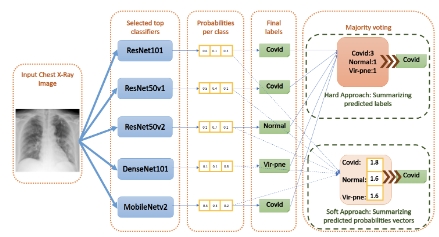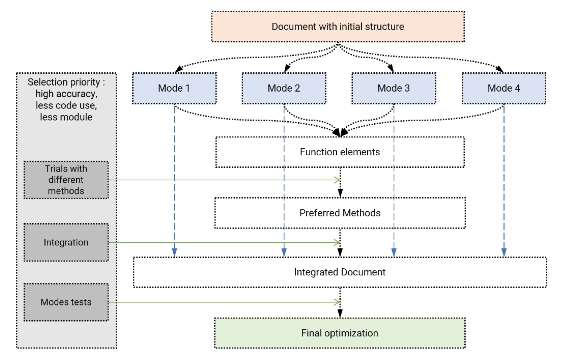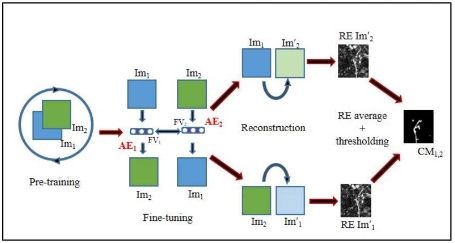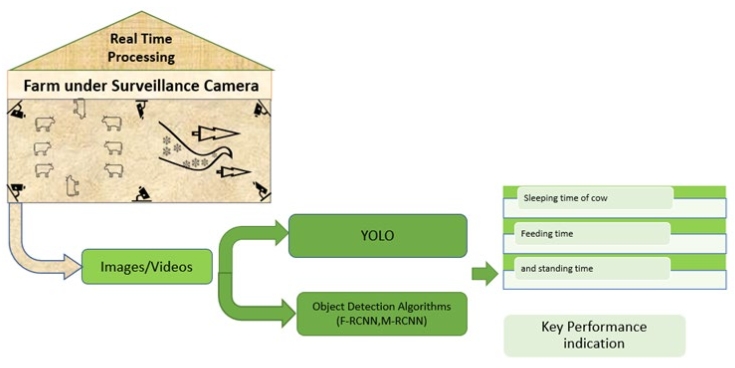The based-biofeedback approach versus ECG for evaluation heart rate variability during the maximal exercise protocol among healthy individuals
Abstract
Although the use of biofeedback devices is beyond measure, they are widely applied only for clinical purposes. Therefore, this study evaluated whether biofeedback devices could be applied to estimate heart rate variability (HRV) among healthy populations. 60 individuals (46 ± 5 years; 30 women) performed maximal exercise protocol (MEP). At pre- and post-MEP status, HRV indexes were collected by two devices: 1) the electrocardiogram device (ECG); 2) the biofeedback device (BIO). At pre-exercise status, all HRV parameters had significant correlations, ranging from low (r = 0.241) to high (r = 0.779). At post-exercise status, significant correlations for some of the HRV measures were found as well, ranging from low (i.e., r ≤ 0.29) to moderate (i.e., 0.3 ≤ r ≤ 0.49). According to our knowledge, this study is the first attempt to evaluate HRV by biofeedback devices among healthy individuals, which shows they can also be applied as a swift method to examine HRV among healthy individuals, especially in rest conditions.
References
[1]Shaffer F, Ginsberg JP. An Overview of Heart Rate Variability Metrics and Norms. Frontiers in Public Health. 2017; 5. doi: 10.3389/fpubh.2017.00258
[2]Vanderlei LCM, Pastre CM, Hoshi RA, et al. Basics of heart rate variability and its clinical applicability (Portuguese). Revista Brasileira de Cirurgia Cardiovascular. 2009; 24(2): 205-217. doi: 10.1590/s0102-76382009000200018
[3]Malliani A, Montano N. Heart rate variability as a clinical tool. Italian Heart Journal. 2002; 3: 439-445.
[4]Malik M. Heart Rate Variability. Annals of Noninvasive Electrocardiology. 1996; 1(2): 151-181. doi: 10.1111/j.1542-474x.1996.tb00275.x
[5]De Maria B, Dalla Vecchia LA, Porta A, et al. Autonomic dysfunction and heart rate variability with Holter monitoring: a diagnostic look at autonomic regulation. Herzschrittmachertherapie + Elektrophysiologie. 2021; 32(3): 315-319. doi: 10.1007/s00399-021-00780-5
[6]Treiber FA, Kamarck T, Schneiderman N, et al. Cardiovascular Reactivity and Development of Preclinical and Clinical Disease States. Psychosomatic Medicine. 2003; 65(1): 46-62. doi: 10.1097/00006842-200301000-00007
[7]Phillips AC. Blunted as well as exaggerated cardiovascular reactivity to stress is associated with negative health outcomes1. Japanese Psychological Research. 2011; 53(2): 177-192. doi: 10.1111/j.1468-5884.2011.00464.x
[8]Lovallo WR. Cardiovascular reactivity: Mechanisms and pathways to cardiovascular disease. International Journal of Psychophysiology. 2005; 58(2-3): 119-132. doi: 10.1016/j.ijpsycho.2004.11.007
[9]Daanen HAM, Lamberts RP, Kallen VL, et al. A Systematic Review on Heart-Rate Recovery to Monitor Changes in Training Status in Athletes. International Journal of Sports Physiology and Performance. 2012; 7(3): 251-260. doi: 10.1123/ijspp.7.3.251
[10]Lamberts RP, Swart J, Noakes TD, et al. Changes in heart rate recovery after high-intensity training in well-trained cyclists. European Journal of Applied Physiology. 2008; 105(5): 705-713. doi: 10.1007/s00421-008-0952-y
[11]Borresen J, Lambert MI. Autonomic Control of Heart Rate during and after Exercise. Sports Medicine. 2008; 38(8): 633-646. doi: 10.2165/00007256-200838080-00002
[12]Lin IM, Fan SY, Yen CF, et al. Heart Rate Variability Biofeedback Increased Autonomic Activation and Improved Symptoms of Depression and Insomnia among Patients with Major Depression Disorder. Clinical Psychopharmacology and Neuroscience. 2019; 17(2): 222-232. doi: 10.9758/cpn.2019.17.2.222
[13]Zucker TL, Samuelson KW, Muench F, et al. The Effects of Respiratory Sinus Arrhythmia Biofeedback on Heart Rate Variability and Posttraumatic Stress Disorder Symptoms: A Pilot Study. Applied Psychophysiology and Biofeedback. 2009; 34(2): 135-143. doi: 10.1007/s10484-009-9085-2
[14]Sánchez-Delgado JC, Jácome-Hortúa AM, Yoshida de Melo K, et al. Physical Exercise Effects on Cardiovascular Autonomic Modulation in Postmenopausal Women—A Systematic Review and Meta-Analysis. International Journal of Environmental Research and Public Health. 2023; 20(3): 2207. doi: 10.3390/ijerph20032207
[15]Souza H. Autonomic Cardiovascular Damage during Post-menopause: the Role of Physical Training. Aging and Disease. 2013; 4(6): 320-328. doi: 10.14336/ad.2013.0400320
[16]Souza HCD, Philbois SV, Veiga AC, et al. Heart Rate Variability and Cardiovascular Fitness: What We Know so Far. Vascular Health and Risk Management. 2021; 17: 701-711. doi: 10.2147/vhrm.s279322
[17]França da Silva AK, Penachini da Costa de Rezende Barbosa M, Marques Vanderlei F, et al. Application of Heart Rate Variability in Diagnosis and Prognosis of Individuals with Diabetes Mellitus: Systematic Review. Annals of Noninvasive Electrocardiology. 2016; 21(3): 223-235. doi: 10.1111/anec.12372
[18]Tsuji H, Larson MG, Venditti FJ, et al. Impact of Reduced Heart Rate Variability on Risk for Cardiac Events. Circulation. 1996; 94(11): 2850-2855. doi: 10.1161/01.cir.94.11.2850
[19]Dekker JM, Crow RS, Folsom AR, et al. Low Heart Rate Variability in a 2-Minute Rhythm Strip Predicts Risk of Coronary Heart Disease and Mortality from Several Causes. Circulation. 2000; 102(11): 1239-1244. doi: 10.1161/01.cir.102.11.1239
[20]Antelmi I, De Paula RS, Shinzato AR, et al. Influence of age, gender, body mass index, and functional capacity on heart rate variability in a cohort of subjects without heart disease. The American Journal of Cardiology. 2004; 93(3): 381-385. doi: 10.1016/j.amjcard.2003.09.065
[21]Ogliari G, Mahinrad S, Stott DJ, et al. Resting heart rate, heart rate variability and functional decline in old age. Canadian Medical Association Journal. 2015; 187(15): E442-E449. doi: 10.1503/cmaj.150462
[22]Nolan J, Batin PD, Andrews R, et al. Prospective Study of Heart Rate Variability and Mortality in Chronic Heart Failure. Circulation. 1998; 98(15): 1510-1516. doi: 10.1161/01.cir.98.15.1510
[23]Freitas VP de, Passos R da S, Oliveira AA, et al. Sarcopenia is associated to an impaired autonomic heart rate modulation in community-dwelling old adults. Archives of Gerontology and Geriatrics. 2018; 76: 120-124. doi: 10.1016/j.archger.2018.01.006
[24]Wu WC, Wong EC. Feasibility of Velocity Selective Arterial Spin Labeling in Functional MRI. Journal of Cerebral Blood Flow & Metabolism. 2007; 27(4): 831-838. doi: 10.1038/sj.jcbfm.9600386
[25]Thayer JF, Sternberg E. Beyond Heart Rate Variability. Annals of the New York Academy of Sciences. 2006; 1088(1): 361-372. doi: 10.1196/annals.1366.014
[26]Spiegelhalder K, fuchs L, Ladwig J, et al. Heart rate and heart rate variability in subjectively reported insomnia. Journal of Sleep Research. 2011; 20: 137-145. doi: 10.1111/j.1365-2869.2010.00863.x
[27]Furlan R, Piazza S, Dell’Orto S, et al. Early and late effects of exercise and athletic training on neural mechanisms controlling heart rate. Cardiovascular Research. 1993; 27(3): 482-488. doi: 10.1093/cvr/27.3.482
[28]Hautala AJ, Mäkikallio TH, Kiviniemi A, et al. Cardiovascular autonomic function correlates with the response to aerobic training in healthy sedentary subjects. American Journal of Physiology-Heart and Circulatory Physiology. 2003; 285(4): H1747-H1752. doi: 10.1152/ajpheart.00202.2003
[29]Hautala A, Tulppo MP, Mäkikallio TH, et al. Changes in cardiac autonomic regulation after prolonged maximal exercise. Clinical Physiology. 2001; 21(2): 238-245. doi: 10.1046/j.1365-2281.2001.00309.x
[30]Arêas GPT, Caruso FCR, Simões RP, et al. Ultra-short-term heart rate variability during resistance exercise in the elderly. Brazilian Journal of Medical and Biological Research. 2018; 51(6). doi: 10.1590/1414-431x20186962
[31]Lin YY, Lee SD. Cardiovascular Benefits of Exercise Training in Postmenopausal Hypertension. International Journal of Molecular Sciences. 2018; 19(9): 2523. doi: 10.3390/ijms19092523
[32]Souza HCD, Ballejo G, Salgado MCO, et al. Cardiac sympathetic overactivity and decreased baroreflex sensitivity in l-NAME hypertensive rats. American Journal of Physiology-Heart and Circulatory Physiology. 2001; 280(2): H844-H850. doi: 10.1152/ajpheart.2001.280.2.h844
[33]Freire Machi J, da Silva Dias D, Freitas S, et al. Impact of aging on cardiac function in a female rat model of menopause: role of autonomic control, inflammation, and oxidative stress. Clinical Interventions in Aging. 2016; 341. doi: 10.2147/cia.s88441
[34]Shimojo GL, Palma RK, Brito JO, et al. Dynamic resistance training decreases sympathetic tone in hypertensive ovariectomized rats. Brazilian Journal of Medical and Biological Research. 2015; 48(6): 523-527. doi: 10.1590/1414-431x20154387
[35]da Palma RK, Moraes-Silva IC, da Silva Dias D, et al. Resistance or aerobic training decreases blood pressure and improves cardiovascular autonomic control and oxidative stress in hypertensive menopausal rats. Journal of Applied Physiology. 2016; 121(4): 1032-1038. doi: 10.1152/japplphysiol.00130.2016
[36]Mariano IM, Freitas VH de, Batista JP, et al. Effect of combined exercise training on heart rate variability in normotensive and hypertensive postmenopausal women. Motriz: Revista de Educação Física. 2021; 27. doi: 10.1590/s1980-65742021020621
[37]Shimojo GL, Silva Dias D da, Malfitano C, et al. Combined Aerobic and Resistance Exercise Training Improve Hypertension Associated with Menopause. Frontiers in Physiology. 2018; 9. doi: 10.3389/fphys.2018.01471
[38]Weston KS, Wisløff U, Coombes JS. High-intensity interval training in patients with lifestyle-induced cardiometabolic disease: a systematic review and meta-analysis. British Journal of Sports Medicine. 2013; 48(16): 1227-1234. doi: 10.1136/bjsports-2013-092576
[39]O’Donnell E, Craig J. Habitual aerobic exercise in healthy postmenopausal women does not augment basal cardiac autonomic activity yet modulates autonomic-metabolic interactions. Menopause. 2022; 29(6): 714-722. doi: 10.1097/gme.0000000000001963
[40]da Silva CC, Pereira LM, Cardoso JR, et al. The Effect of Physical Training on Heart Rate Variability in Healthy Children: A Systematic Review with Meta-Analysis. Pediatric Exercise Science. 2014; 26(2): 147-158. doi: 10.1123/pes.2013-0063
[41]Grässler B, Thielmann B, Böckelmann I, et al. Effects of Different Training Interventions on Heart Rate Variability and Cardiovascular Health and Risk Factors in Young and Middle-Aged Adults: A Systematic Review. Frontiers in Physiology. 2021; 12. doi: 10.3389/fphys.2021.657274
[42]Villafaina S, Collado-Mateo D, Fuentes JP, et al. Physical Exercise Improves Heart Rate Variability in Patients with Type 2 Diabetes: A Systematic Review. Current Diabetes Reports. 2017; 17(11). doi: 10.1007/s11892-017-0941-9
[43]Belvederi Murri M, Folesani F, Zerbinati L, et al. Physical Activity Promotes Health and Reduces Cardiovascular Mortality in Depressed Populations: A Literature Overview. International Journal of Environmental Research and Public Health. 2020; 17(15): 5545. doi: 10.3390/ijerph17155545
[44]Palma S, Keilani M, Hasenoehrl T, et al. Impact of supportive therapy modalities on heart rate variability in cancer patients—a systematic review. Disability and Rehabilitation. 2018; 42(1): 36-43. doi: 10.1080/09638288.2018.1514664
[45]Sandercock GRH, Shelton C, Bromley P, et al. Agreement between three commercially available instruments for measuring short-term heart rate variability. Physiological Measurement. 2004; 25(5): 1115-1124. doi: 10.1088/0967-3334/25/5/003
[46]Bhati P, Moiz JA, Menon GR, et al. Does resistance training modulate cardiac autonomic control? A systematic review and meta-analysis. Clinical Autonomic Research. 2018; 29(1): 75-103. doi: 10.1007/s10286-018-0558-3
[47]Sant’Ana L de O, Machado S, Ribeiro AA de S, et al. Effects of Cardiovascular Interval Training in Healthy Elderly Subjects: A Systematic Review. Frontiers in Physiology. 2020; 11. doi: 10.3389/fphys.2020.00739
[48]Hottenrott K, Hoos O, Esperer HD. Heart rate variability and sport (German). Herz Kardiovaskuläre Erkrankungen. 2006; 31(6): 544-552. doi: 10.1007/s00059-006-2855-1
[49]D’Agosto T, Peçanha T, Bartels R, et al. Cardiac Autonomic Responses at Onset of Exercise: Effects of Aerobic Fitness. International Journal of Sports Medicine. 2014; 35(10): 879-885. doi: 10.1055/s-0034-1370911
[50]Boullosa DA, Nakamura FY, Perandini LA, et al. Autonomic correlates of Yo-Yo performance in soccer referees. Motriz: Revista de Educação Física. 2012; 18(2): 291-297. doi: 10.1590/s1980-65742012000200009
[51]Stanley J, Peake JM, Buchheit M. Cardiac Parasympathetic Reactivation Following Exercise: Implications for Training Prescription. Sports Medicine. 2013; 43(12): 1259-1277. doi: 10.1007/s40279-013-0083-4
[52]Li Z, Wang C, Mak AFT, et al. Effects of acupuncture on heart rate variability in normal subjects under fatigue and non-fatigue state. European Journal of Applied Physiology. 2005; 94(5-6): 633-640. doi: 10.1007/s00421-005-1362-z
[53]Jerath R, Syam M, Ahmed S. The Future of Stress Management: Integration of Smartwatches and HRV Technology. Sensors. 2023; 23(17): 7314. doi: 10.3390/s23177314
[54]Dalmeida KM, Masala GL. HRV Features as Viable Physiological Markers for Stress Detection Using Wearable Devices. Sensors. 2021; 21(8): 2873. doi: 10.3390/s21082873
[55]Chalmers T, Hickey BA, Newton P, et al. Stress Watch: The Use of Heart Rate and Heart Rate Variability to Detect Stress: A Pilot Study Using Smart Watch Wearables. Sensors. 2021; 22(1): 151. doi: 10.3390/s22010151
[56]Neri L, Corazza I, Oberdier MT, et al. Comparison Between a Single-Lead ECG Garment Device and a Holter Monitor: A Signal Quality Assessment. Journal of Medical Systems. 2024; 48(1). doi: 10.1007/s10916-024-02077-9
[57]Gilgen-Ammann R, Schweizer T, Wyss T. RR interval signal quality of a heart rate monitor and an ECG Holter at rest and during exercise. European Journal of Applied Physiology. 2019; 119(7): 1525-1532. doi: 10.1007/s00421-019-04142-5
[58]Singh N, Moneghetti KJ, Christle JW, et al. Heart Rate Variability: An Old Metric with New Meaning in the Era of Using mHealth technologies for Health and Exercise Training Guidance. Part Two: Prognosis and Training. Arrhythmia & Electrophysiology Review. 2018; 7(4): 1. doi: 10.15420/aer.2018.30.2
[59]Kinnunen H, Rantanen A, Kenttä T, et al. Feasible assessment of recovery and cardiovascular health: accuracy of nocturnal HR and HRV assessed via ring PPG in comparison to medical grade ECG. Physiological Measurement. 2020; 41(4): 04NT01. doi: 10.1088/1361-6579/ab840a
[60]Bent B, Goldstein BA, Kibbe WA, et al. Investigating sources of inaccuracy in wearable optical heart rate sensors. npj Digital Medicine. 2020; 3(1). doi: 10.1038/s41746-020-0226-6
[61]Vescio B, Salsone M, Gambardella A, et al. Comparison between Electrocardiographic and Earlobe Pulse Photoplethysmographic Detection for Evaluating Heart Rate Variability in Healthy Subjects in Short- and Long-Term Recordings. Sensors. 2018; 18(3): 844. doi: 10.3390/s18030844
[62]Hallman D, Sato T, Kristiansen J, et al. Prolonged Sitting is Associated with Attenuated Heart Rate Variability during Sleep in Blue-Collar Workers. International Journal of Environmental Research and Public Health. 2015; 12(11): 14811-14827. doi: 10.3390/ijerph121114811
[63]Bogdány T, et al. Validation of the First beat Team Belt and BodyGuard2 systems. Magyar Sporttudományi Szemle. 2016; 17(3): 5-12.
[64]Czekaj L, Daniszewski M, Domaszewicz J. Validation of the Aidlab solution for measuring Heart Rate Variability. Aidlab: Gdansk, Poland; 2019.
[65]Giles D, Draper N, Neil W. Validity of the Polar V800 heart rate monitor to measure RR intervals at rest. European Journal of Applied Physiology. 2015; 116(3): 563-571. doi: 10.1007/s00421-015-3303-9
[66]Hillebrand S, Gast KB, de Mutsert R, et al. Heart rate variability and first cardiovascular event in populations without known cardiovascular disease: meta-analysis and dose–response meta-regression. EP Europace. 2013; 15(5): 742-749. doi: 10.1093/europace/eus341
[67]Dahiya ES, Kalra AM, Lowe A, et al. Wearable Technology for Monitoring Electrocardiograms (ECGs) in Adults: A Scoping Review. Sensors. 2024; 24(4): 1318. doi: 10.3390/s24041318
[68]Vanderlei LCM, Silva RA, Pastre CM, et al. Comparison of the Polar S810i monitor and the ECG for the analysis of heart rate variability in the time and frequency domains. Brazilian Journal of Medical and Biological Research. 2008; 41(10): 854-859. doi: 10.1590/s0100-879x2008005000039
[69]Weippert M, Kumar M, Kreuzfeld S, et al. Comparison of three mobile devices for measuring R–R intervals and heart rate variability: Polar S810i, Suunto t6 and an ambulatory ECG system. European Journal of Applied Physiology. 2010; 109(4): 779-786. doi: 10.1007/s00421-010-1415-9
[70]Caminal P, Sola F, Gomis P, et al. Validity of the Polar V800 monitor for measuring heart rate variability in mountain running route conditions. European Journal of Applied Physiology. 2018; 118(3): 669-677. doi: 10.1007/s00421-018-3808-0
[71]Kalra A, Lowe A, Al-Jumaily A. Critical review of electrocardiography measurement systems and technology. Measurement Science and Technology. 2018; 30(1): 012001. doi: 10.1088/1361-6501/aaf2b7
[72]Khunti K. Accurate interpretation of the 12-lead ECG electrode placement: A systematic review. Health Education Journal. 2013; 73(5): 610-623. doi: 10.1177/0017896912472328
[73]Lehrer PM. Heart rate variability biofeedback and other psychophysiological procedures as important elements in psychotherapy. International Journal of Psychophysiology. 2018; 131: 89-95. doi: 10.1016/j.ijpsycho.2017.09.012
[74]Schäfer SK, Ihmig FR, Lara HKA, et al. Effects of heart rate variability biofeedback during exposure to fear-provoking stimuli within spider-fearful individuals: study protocol for a randomized controlled trial. Trials. 2018; 19(1). doi: 10.1186/s13063-018-2554-2
[75]Subhani AR, Kamel N, Mohamad Saad MN, et al. Mitigation of stress: new treatment alternatives. Cognitive Neurodynamics. 2017; 12(1): 1-20. doi: 10.1007/s11571-017-9460-2
[76]Prinsloo GE, Rauch HGL, Derman WE. A Brief Review and Clinical Application of Heart Rate Variability Biofeedback in Sports, Exercise, and Rehabilitation Medicine. The Physician and Sportsmedicine. 2014; 42(2): 88-99. doi: 10.3810/psm.2014.05.2061
[77]Lin IM, Ko JM, Fan SY, et al. Heart Rate Variability and the Efficacy of Biofeedback in Heroin Users with Depressive Symptoms. Clinical Psychopharmacology and Neuroscience. 2016; 14(2): 168-176. doi: 10.9758/cpn.2016.14.2.168
[78]Sutarto AP, Abdul Wahab MN, Mat Zin N. Heart Rate Variability (HRV) biofeedback: A new training approach for operator’s performance enhancement. Journal of Industrial Engineering and Management. 2010; 3(1). doi: 10.3926/jiem.2010.v3n1.p176-198
[79]Wang X, Chen P, Huang X, et al. Guasha improves the rating of perceived exertion scale score and reduces heart rate variability in male weightlifters: a randomized controlled trial. Journal of Traditional Chinese Medicine. 2017; 37(1): 49-56. doi: 10.1016/S0254-6272(17)30026-2
[80]Strauss‐Blasche G, Moser M, Voica M, et al. Relative Timing of Inspiration and Expiration Affects Respiratory Sinus Arrhythmia. Clinical and Experimental Pharmacology and Physiology. 2000; 27(8): 601-606. doi: 10.1046/j.1440-1681.2000.03306.x
[81]Lehrer PM, Gevirtz R. Heart rate variability biofeedback: how and why does it work? Frontiers in Psychology. 2014; 5. doi: 10.3389/fpsyg.2014.00756
[82]Shrestha B, Dunn L. The Declaration of Helsinki on Medical Research involving Human Subjects: A Review of Seventh Revision. Journal of Nepal Health Research Council. 2020; 17(4): 548-552. doi: 10.33314/jnhrc.v17i4.1042
[83]Bergman RN, Stefanovski D, Buchanan TA, et al. A Better Index of Body Adiposity. Obesity. 2011; 19(5): 1083-1089. doi: 10.1038/oby.2011.38
[84]Bruce RA, Kusumi F, Hosmer D. Maximal oxygen intake and nomographic assessment of functional aerobic impairment in cardiovascular disease. American heart journal. 1973; 85(4): 546-562. doi: 10.1016/0002-8703(73)90502-4
[85]Pouriamehr S, Dabidi Roshan V, Shirani F. Does long-term exposure to air pollution suppress parasympathetic reactivation after incremental exercise among healthy males and females? Inhalation Toxicology. 2022; 35(1-2): 14-23. doi: 10.1080/08958378.2022.2149905
[86]Jamnick NA, By S, Pettitt CD, et al. Comparison of the YMCA and a Custom Submaximal Exercise Test for Determining V˙O2max. Medicine & Science in Sports & Exercise. 2016; 48(2): 254-259. doi: 10.1249/mss.0000000000000763
[87]Alcantara JMA, Plaza-Florido A, Amaro-Gahete FJ, et al. Impact of Using Different Levels of Threshold-Based Artefact Correction on the Quantification of Heart Rate Variability in Three Independent Human Cohorts. Journal of Clinical Medicine. 2020; 9(2): 325. doi: 10.3390/jcm9020325
[88]Tarvainen MP, Niskanen JP, Lipponen JA, et al. Kubios HRV—Heart rate variability analysis software. Computer Methods and Programs in Biomedicine. 2014; 113(1): 210-220. doi: 10.1016/j.cmpb.2013.07.024
[89]Wang X, Chatchawan U, Nakmareong S, et al. Effects of GUASHA on Heart Rate Variability in Healthy Male Volunteers under Normal Condition and Weightlifters after Weightlifting Training Sessions. Evidence-Based Complementary and Alternative Medicine. 2015; 2015: 1-6. doi: 10.1155/2015/268471
[90]Mödling J. Hardware English Assessment Systems. Available online: https://asystems.as/wp-content/uploads/2018/05/Biofeedback_2000x-pert_Hardware_manual.pdf (accessed on 12 May 2024).
[91]Ahmadian M, Roshan VD, Hosseinzadeh M. Parasympathetic reactivation in children: influence of two various modes of exercise. Clinical Autonomic Research. 2015; 25(4): 207-212. doi: 10.1007/s10286-015-0289-7
[92]Leicht AS, Crowther RG, Golledge J. Influence of peripheral arterial disease and supervised walking on heart rate variability. Journal of Vascular Surgery. 2011; 54(5): 1352-1359. doi: 10.1016/j.jvs.2011.05.027
[93]Mukaka MM. A guide to appropriate use of correlation coefficient in medical research. Malawi medical journal. 2012; 24(3): 69-71.
[94]Koo TK, Li MY. A Guideline of Selecting and Reporting Intraclass Correlation Coefficients for Reliability Research. Journal of Chiropractic Medicine. 2016; 15(2): 155-163. doi: 10.1016/j.jcm.2016.02.012
[95]Bland JM, Altman DG, Warner DS. Agreed Statistics. Anesthesiology. 2012; 116(1): 182-185. doi: 10.1097/aln.0b013e31823d7784
[96]Hinde K, White G, Armstrong N. Wearable Devices Suitable for Monitoring Twenty Four Hour Heart Rate Variability in Military Populations. Sensors. 2021; 21(4): 1061. doi: 10.3390/s21041061
[97]Mejía-Mejía E, May JM, Torres R, et al. Pulse rate variability in cardiovascular health: a review on its applications and relationship with heart rate variability. Physiological Measurement. 2020; 41(7): 07TR01. doi: 10.1088/1361-6579/ab998c
[98]Lehrer P. Applied psychophysiology: Beyond the boundaries of biofeedback (mending a wall, a brief history of our field, and applications to control of the muscles and cardiorespiratory systems). Applied Psychophysiology and biofeedback. 2003; 28(4): 291-304. doi: 10.1023/A:1027330909265
[99]Vaillancourt DE, Newell KM. Changing complexity in human behavior and physiology through aging and disease. Neurobiology of aging. 2002; 23(1): 1-11. doi: 10.1016/S0197-4580(01)00247-0
[100]de Groot M, Myers BA, Stump T, et al. 690-P: Relationship of Diabetes Distress and Symptoms of Autonomic Nervous System Dysregulation in Type 1 Diabetes Adults. Diabetes. 2024; 73. doi: 10.2337/db24-690-p
[101]Takase B. Role of Heart Rate Variability in Non‐Invasive Electrophysiology: Prognostic Markers of Cardiovascular Disease. Journal of Arrhythmia. 2010; 26(4): 227-237. doi: 10.1016/S1880-4276(10)80021-3
[102]Xhyheri B, Manfrini O, Mazzolini M, et al. Heart Rate Variability Today. Progress in Cardiovascular Diseases. 2012; 55(3): 321-331. doi: 10.1016/j.pcad.2012.09.001
[103]Stein PK, Domitrovich PP, Huikuri HV, et al. Traditional and Nonlinear Heart Rate Variability Are Each Independently Associated with Mortality after Myocardial Infarction. Journal of Cardiovascular Electrophysiology. 2005; 16(1): 13-20. doi: 10.1046/j.1540-8167.2005.04358.x
[104]Huang C, Alamili M, Rosenberg J, et al. Heart rate variability is reduced during acute uncomplicated diverticulitis. Journal of Critical Care. 2016; 32: 189-195. doi: 10.1016/j.jcrc.2015.12.006
[105]Ahmad S, Ramsay T, Huebsch L, et al. Continuous Multi-Parameter Heart Rate Variability Analysis Heralds Onset of Sepsis in Adults. PLoS ONE. 2009; 4(8): e6642. doi: 10.1371/journal.pone.0006642
[106]Porges SW. The polyvagal theory: phylogenetic substrates of a social nervous system. International journal of psychophysiology. 2001; 42(2): 123-146. doi: 10.1016/S0167-8760(01)00162-3
[107]Aubert AE, Seps B, Beckers F. Heart Rate Variability in Athletes. Sports Medicine. 2003; 33(12): 889-919. doi: 10.2165/00007256-200333120-00003
[108]Hernando D, Hernando A, Casajús JA, et al. Methodological framework for heart rate variability analysis during exercise: application to running and cycling stress testing. Medical & Biological Engineering & Computing. 2017; 56(5): 781-794. doi: 10.1007/s11517-017-1724-9
[109]da Silva DF, Ferraro ZM, Adamo KB, et al. Endurance Running Training Individually Guided by HRV in Untrained Women. Journal of Strength and Conditioning Research. 2019; 33(3): 736-746. doi: 10.1519/jsc.0000000000002001
[110]Lee J, Shields RK. Sympathetic Vagal Balance and Cognitive Performance in Young Adults during the NIH Cognitive Test. Journal of Functional Morphology and Kinesiology. 2022; 7(3): 59. doi: 10.3390/jfmk7030059
[111]Droll JA, Hayhoe MM. Seeing What We Can Do. In: Handbook of Cognitive Science. Cambridge University Press; 2008; pp. 189-206. doi: 10.1016/b978-0-08-046616-3.00010-4
[112]Forte G, Favieri F, Casagrande M. Heart Rate Variability and Cognitive Function: A Systematic Review. Frontiers in Neuroscience. 2019; 13. doi: 10.3389/fnins.2019.00710
[113]Shah AJ, Su S, Veledar E, et al. Is Heart Rate Variability Related to Memory Performance in Middle-Aged Men? Psychosomatic Medicine. 2011; 73(6): 475-482. doi: 10.1097/psy.0b013e3182227d6a
[114]Hansen AL, Johnsen BH, Thayer JF. Vagal influence on working memory and attention. International journal of psychophysiology. 2003; 48(3): 263-274. doi: 10.1016/S0167-8760(03)00073-4
[115]Lewis MJ, Kingsley M, Short AL, et al. Rate of reduction of heart rate variability during exercise as an index of physical work capacity. Scandinavian Journal of Medicine & Science in Sports. 2007; 17(6): 696-702. doi: 10.1111/j.1600-0838.2006.00616.x
[116]Messerotti Benvenuti S, Mennella R, Buodo G, et al. Dysphoria is associated with reduced cardiac vagal withdrawal during the imagery of pleasant scripts: Evidence for the positive attenuation hypothesis. Biological Psychology. 2015; 106: 28-38. doi: 10.1016/j.biopsycho.2014.11.017
[117]Schmaußer M, Laborde S. Tonic and phasic cardiac vagal activity predict cognitive-affective processing in an emotional stop-signal task. International Journal of Psychophysiology. 2023; 191: 9-18. doi: 10.1016/j.ijpsycho.2023.06.008
[118]Pessoa L. How do emotion and motivation direct executive control? Trends in Cognitive Sciences. 2009; 13(4): 160-166. doi: 10.1016/j.tics.2009.01.006
[119]Smith R, Thayer JF, Khalsa SS, et al. The hierarchical basis of neurovisceral integration. Neuroscience & Biobehavioral Reviews. 2017; 75: 274-296. doi: 10.1016/j.neubiorev.2017.02.003
[120]Karmali SN, Sciusco A, May SM, et al. Heart rate variability in critical care medicine: a systematic review. Intensive Care Medicine Experimental. 2017; 5(1). doi: 10.1186/s40635-017-0146-1
[121]Quintana DS. Statistical considerations for reporting and planning heart rate variability case‐control studies. Psychophysiology. 2016; 54(3): 344-349. doi: 10.1111/psyp.12798
[122]Bruyne MCD, Kors JA, Hoes AW, et al. Both Decreased and Increased Heart Rate Variability on the Standard 10-Second Electrocardiogram Predict Cardiac Mortality in the Elderly: The Rotterdam Study. American Journal of Epidemiology. 1999; 150(12): 1282-1288. doi: 10.1093/oxfordjournals.aje.a009959
[123]Lee D, Baek JH, Cho YJ, et al. Association of Resting Heart Rate and Heart Rate Variability with Proximal Suicidal Risk in Patients with Diverse Psychiatric Diagnoses. Frontiers in Psychiatry. 2021; 12. doi: 10.3389/fpsyt.2021.652340
Copyright (c) 2024 Sara Pouriamehr, Valiollah Dabidi Roshan, Somayeh Namdar Tajari

This work is licensed under a Creative Commons Attribution 4.0 International License.










